Conversations Before Midnight

Annual Event
November 9, 2021 | 5:00 p.m. - 7:00 p.m. Central Time
You are invited to participate in our 2021 Virtual Annual Event
This unique virtual experience allows you and your guests to join small, carefully curated “tables” and engage with our global audience, thought leaders, and experts from around the world – all from the comfort of your own home.
By participating, you are supporting the Bulletin’s vital mission of equipping the public, policymakers, and scientists with the information needed to reduce man-made threats to our existence, while at the same time elevating the role of science in the formation of public policy.
Presented Virtually
Connect with the Bulletin’s global supporters | Participate in high-level conversations | Engage from the comfort of home
The Bulletin’s signature annual event provides attendees the opportunity to engage with the most informed and influential experts tracking man-made threats to our existence. Share this experience with friends or colleagues, or join small curated groups of engaged counterparts from around the world — all from the comfort of your own home.
Thursday, November 9, 2021*
*All times below are US Central time.
- 4:30 p.m. - Online Event Opens. We encourage you to join at this time and meet people at your virtual table.
- 5:00 p.m. - Live Program begins with Welcome Remarks and Keynote Conversation.
- 5:30 p.m. - Table Conversation #1 (pre-arranged small group session).
- 6:15 p.m. - Honoring Robert Rosner and Rieser Award Recipient Jake Tibbetts.
- 6:30 p.m. - Table Conversation #2 (pre-arranged small group session).
- 7:00 p.m. - Closing Remarks and Live Program Ends.
For further information, please contact Colleen McElligott at [email protected] or 773.834.2308.
Keynote Conversation - Rose Gottemoeller
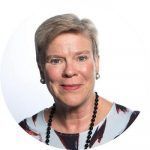 Rose Gottemoeller is the Frank E. and Arthur W. Payne Distinguished Lecturer at Stanford University’s Freeman Spogli Institute for International Studies and its Center for International Security and Cooperation.
Rose Gottemoeller is the Frank E. and Arthur W. Payne Distinguished Lecturer at Stanford University’s Freeman Spogli Institute for International Studies and its Center for International Security and Cooperation.
Before joining Stanford, Gottemoeller was the deputy secretary general of NATO from 2016 to 2019, where she helped to drive forward NATO’s adaptation to new security challenges in Europe and in the fight against terrorism. Prior to NATO, she served for nearly five years as the Under Secretary for Arms Control and International Security at the US Department of State, advising the Secretary of State on arms control, nonproliferation, and political-military affairs. While Assistant Secretary of State for Arms Control, Verification, and Compliance in 2009 and 2010, she was the chief negotiator of the New Strategic Arms Reduction Treaty (New START) with the Russian Federation. Her experience is described in a memoir, Negotiating the New START Treaty, recently published by Cambria Press.
Prior to her government service, she was a senior associate with the Carnegie Endowment for International Peace, with joint appointments to the Nonprolifertion and Russia programs. She served as the director of the Carnegie Moscow Center from 2006 to 2008 and is currently a nonresident fellow in Carnegie’s Nuclear Policy Program. She is also a research fellow at the Hoover Institution.
Special Remarks - Rachel Bronson
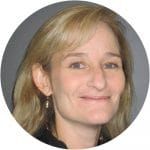 Rachel Bronson is the president and CEO of the Bulletin of the Atomic Scientists, where she oversees the publishing programs, management of the Doomsday Clock, and a growing set of activities around nuclear weapons, nuclear energy, climate change, and disruptive technologies. Before joining the Bulletin, she served for eight years at the Chicago Council on Global Affairs in a number of capacities including: vice president of studies, vice president of programs and studies, and senior fellow, global energy. She also taught “Global Energy” as an adjunct professor at the Kellogg School of Management. She earned a BA in history at the University of Pennsylvania and a MA and PhD in political science from Columbia University in 1997.
Rachel Bronson is the president and CEO of the Bulletin of the Atomic Scientists, where she oversees the publishing programs, management of the Doomsday Clock, and a growing set of activities around nuclear weapons, nuclear energy, climate change, and disruptive technologies. Before joining the Bulletin, she served for eight years at the Chicago Council on Global Affairs in a number of capacities including: vice president of studies, vice president of programs and studies, and senior fellow, global energy. She also taught “Global Energy” as an adjunct professor at the Kellogg School of Management. She earned a BA in history at the University of Pennsylvania and a MA and PhD in political science from Columbia University in 1997.
Honoree - Robert Rosner
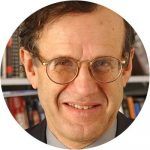 Robert Rosner is the William E. Wrather Distinguished Service Professor in the Departments of Astronomy & Astrophysics and Physics, and the Harris School of Public Policy at the University of Chicago. Rosner served as director of Argonne National Laboratory, where he had previously served as chief scientist. His current scientific research is mostly in the areas of laboratory and astrophysical fluid dynamics and magnetohydrodynamics, and computational physics. His policy-oriented work has focused on the future of nuclear power and the back end of the nuclear fuel cycle, as well as various aspects of electrifying the transport sector. Rosner was a founding co-director of the University of Chicago’s Energy Policy Institute, and in 2020 he was elected to the presidential line of the American Physical Society. He is an elected member of the Academy of Arts & Sciences and the Norwegian Academy of Science and Letters. Rosner is chair of the Bulletin Science and Security Board.
Robert Rosner is the William E. Wrather Distinguished Service Professor in the Departments of Astronomy & Astrophysics and Physics, and the Harris School of Public Policy at the University of Chicago. Rosner served as director of Argonne National Laboratory, where he had previously served as chief scientist. His current scientific research is mostly in the areas of laboratory and astrophysical fluid dynamics and magnetohydrodynamics, and computational physics. His policy-oriented work has focused on the future of nuclear power and the back end of the nuclear fuel cycle, as well as various aspects of electrifying the transport sector. Rosner was a founding co-director of the University of Chicago’s Energy Policy Institute, and in 2020 he was elected to the presidential line of the American Physical Society. He is an elected member of the Academy of Arts & Sciences and the Norwegian Academy of Science and Letters. Rosner is chair of the Bulletin Science and Security Board.
2020 Leonard M. Rieser Award Recipient - Jake Tibbetts
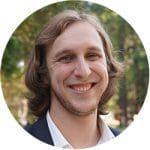 Jake Tibbetts is the 2020 Leonard M. Rieser Award recipient for his essay, Keeping classified information secret in a world of quantum computing. His article was selected by the Bulletin’s editorial team from its Voices of Tomorrow feature that promotes rising experts who write with distinction on topics including nuclear risk, climate change, and disruptive technologies. The Rieser Award is the capstone of the Bulletin’s Next Generation Program, created to ensure that new voices steeped in science and public policy have a trusted platform from which to address existential challenges. It is named for physicist Leonard M. Rieser (1922-1998), board chair at the Bulletin from 1984 to 1998.
Jake Tibbetts is the 2020 Leonard M. Rieser Award recipient for his essay, Keeping classified information secret in a world of quantum computing. His article was selected by the Bulletin’s editorial team from its Voices of Tomorrow feature that promotes rising experts who write with distinction on topics including nuclear risk, climate change, and disruptive technologies. The Rieser Award is the capstone of the Bulletin’s Next Generation Program, created to ensure that new voices steeped in science and public policy have a trusted platform from which to address existential challenges. It is named for physicist Leonard M. Rieser (1922-1998), board chair at the Bulletin from 1984 to 1998.
Introducing the Evening’s Table Experts
Each virtual table has two provocateurs, established and up-and-coming experts in the fields of nuclear risk, climate change, disruptive technologies, and biosecurity. The provocateurs include members of the Bulletin’s Science and Security Board, Board of Sponsors, and invited experts from around the world.
Table hosts ($5K and above) can select two provocateurs to join their guests for small group conversation tables throughout the evening. Each discussion will run approximately 30 minutes. Titanium and Platinum level supporters receive the earliest selection opportunities. Individual ticket buyers will select their areas of interest and will be placed at tables with similarly interested guests.
Luis Bettencourt - Climate Change |
|---|
 Luis Bettencourt is the inaugural Director of the Mansueto Institute for Urban Innovation at the University of Chicago, Professor of Ecology and Evolution at the College. As a scientist of cities, he works with international networks of researchers, local governments, and NGOs to develop solutions to changing urban environments. Invite Luis Bettencourt to your table to better understand the urgent questions cities are facing as they navigate climate change. Luis Bettencourt is the inaugural Director of the Mansueto Institute for Urban Innovation at the University of Chicago, Professor of Ecology and Evolution at the College. As a scientist of cities, he works with international networks of researchers, local governments, and NGOs to develop solutions to changing urban environments. Invite Luis Bettencourt to your table to better understand the urgent questions cities are facing as they navigate climate change. |
Sara Brown - Climate Change |
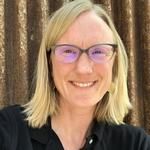 Sara Brown is a former smokejumper and currently the Program Manager at the Fire, Fuel and Smoke Science Program at the Rocky Mountain Research Station, United States Department of Agriculture, Forest Service. A classically trained ecologist with an emphasis in fire ecology, Brown has spent time as an elite firefighter, jumping out of airplanes, suppressing fires, and also as a professor of fire science at New Mexico Highland University. Brown received her master’s degree from Washington State University, and her Ph.D. from University of Wyoming. Invite Sara Brown to your table to learn what fire science says about extreme wildfire events and how we may be able to change our current wildfire trajectory. Sara Brown is a former smokejumper and currently the Program Manager at the Fire, Fuel and Smoke Science Program at the Rocky Mountain Research Station, United States Department of Agriculture, Forest Service. A classically trained ecologist with an emphasis in fire ecology, Brown has spent time as an elite firefighter, jumping out of airplanes, suppressing fires, and also as a professor of fire science at New Mexico Highland University. Brown received her master’s degree from Washington State University, and her Ph.D. from University of Wyoming. Invite Sara Brown to your table to learn what fire science says about extreme wildfire events and how we may be able to change our current wildfire trajectory. |
Lynn Eden* - Nuclear Risk |
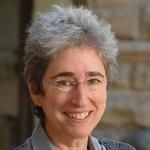 Lynn Eden is a Senior Research Scholar (Emeritus) at Stanford University’s Center for International Security and Cooperation. Her book Whole World on Fire: Organizations, Knowledge, and Nuclear Weapons Devastation won the American Sociological Association’s 2004 Robert K. Merton award for best book in science and technology studies. Her current research and writing asks how U.S. military planning processes have enabled very good people to plan what, if put into action, would result in the deaths of ten, or likely more, million people. Join this conversation to discuss how US military officers make plans to fight and prevail in nuclear war. Lynn Eden is a Senior Research Scholar (Emeritus) at Stanford University’s Center for International Security and Cooperation. Her book Whole World on Fire: Organizations, Knowledge, and Nuclear Weapons Devastation won the American Sociological Association’s 2004 Robert K. Merton award for best book in science and technology studies. Her current research and writing asks how U.S. military planning processes have enabled very good people to plan what, if put into action, would result in the deaths of ten, or likely more, million people. Join this conversation to discuss how US military officers make plans to fight and prevail in nuclear war. |
Rod Ewing* - Nuclear Risk |
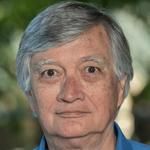 Rod Ewing is the Frank Stanton Professor in Nuclear Security in the Freeman Spogli Institute for International Studies and a professor in the Department of Geological Sciences at Stanford University. He has written extensively on issues related to nuclear waste and disposal management and is co-editor of Radioactive Waste Forms for the Future and Uncertainty Underground: Yucca Mountain and the Nation’s High- Level Nuclear Waste. Ewing received the Lomonosov Medal of the Russian Academy of Sciences in 2006. Join this discussion on nuclear waste and what is required if the US is to develop a safe nuclear fuel cycle. Rod Ewing is the Frank Stanton Professor in Nuclear Security in the Freeman Spogli Institute for International Studies and a professor in the Department of Geological Sciences at Stanford University. He has written extensively on issues related to nuclear waste and disposal management and is co-editor of Radioactive Waste Forms for the Future and Uncertainty Underground: Yucca Mountain and the Nation’s High- Level Nuclear Waste. Ewing received the Lomonosov Medal of the Russian Academy of Sciences in 2006. Join this discussion on nuclear waste and what is required if the US is to develop a safe nuclear fuel cycle. |
Steve Fetter* - Disruptive Technologies |
 Steve Fetter is associate provost, dean of the graduate school, and professor of public policy at the University of Maryland. He served for five years in the White House Office of Science and Technology Policy during the Obama Administration, where he led the environment and energy and the national security and international affairs divisions. He is the recipient of many awards including the Federation of American Scientists’ Hans Bethe Science in the Public Service Award and the Secretary of Defense Medal for Outstanding Public Service. Invite Steve Fetter to your table to discuss new technologies and what they mean for the future of global security. Steve Fetter is associate provost, dean of the graduate school, and professor of public policy at the University of Maryland. He served for five years in the White House Office of Science and Technology Policy during the Obama Administration, where he led the environment and energy and the national security and international affairs divisions. He is the recipient of many awards including the Federation of American Scientists’ Hans Bethe Science in the Public Service Award and the Secretary of Defense Medal for Outstanding Public Service. Invite Steve Fetter to your table to discuss new technologies and what they mean for the future of global security. |
Asha George* - Biosecurity |
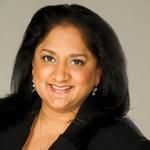 Asha George is the executive director of the Bipartisan Commission on Biodefense, where she plays a leading role in addressing the COVID-19 pandemic and other biological threats, including biological attacks and accidental releases of organisms into the environment. She served in the US House of Representatives as a senior professional staffer and subcommittee staff director at the House Committee on Homeland Security in the 110th and 111th Congress. She served on active duty in the US Army as a military intelligence officer, as a paratrooper, is a decorated Desert Storm Veteran, and received her Doctorate in Public Health from the University of Hawaii at Manoa. Invite Asha George to your table to discuss the global response to COVID-19 and how to better prepare for future pandemics. Asha George is the executive director of the Bipartisan Commission on Biodefense, where she plays a leading role in addressing the COVID-19 pandemic and other biological threats, including biological attacks and accidental releases of organisms into the environment. She served in the US House of Representatives as a senior professional staffer and subcommittee staff director at the House Committee on Homeland Security in the 110th and 111th Congress. She served on active duty in the US Army as a military intelligence officer, as a paratrooper, is a decorated Desert Storm Veteran, and received her Doctorate in Public Health from the University of Hawaii at Manoa. Invite Asha George to your table to discuss the global response to COVID-19 and how to better prepare for future pandemics. |
Daniel Holz* - Disruptive Technologies |
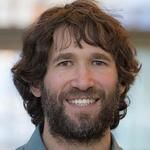 Daniel Holz is a professor at the University of Chicago in the departments of Physics, Astronomy & Astrophysics, the Enrico Fermi Institute, and the Kavli Institute for Cosmological Physics. His research focuses on general relativity in the context of astrophysics and cosmology. He is a member of the Laser Interferometer Gravitational-Wave Observatory (LIGO) collaboration and was part of the team that announced the first detection of gravitational waves in early 2016 and the first multi-messenger detection of a binary neutron star in 2017. If you heard the recent announcement about gravitational waves from black holes merging with neutron stars, you’re going to want Daniel Holz at your table to learn more. Daniel Holz is a professor at the University of Chicago in the departments of Physics, Astronomy & Astrophysics, the Enrico Fermi Institute, and the Kavli Institute for Cosmological Physics. His research focuses on general relativity in the context of astrophysics and cosmology. He is a member of the Laser Interferometer Gravitational-Wave Observatory (LIGO) collaboration and was part of the team that announced the first detection of gravitational waves in early 2016 and the first multi-messenger detection of a binary neutron star in 2017. If you heard the recent announcement about gravitational waves from black holes merging with neutron stars, you’re going to want Daniel Holz at your table to learn more. |
Laura Kahn - Biosecurity |
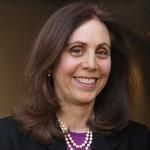 Laura Kahn is a physician and co-founder of One Health Initiative and a columnist for the Bulletin of the Atomic Scientists. Her expertise is in public health leadership, biodefense, and pandemics. Kahn is the author of Who’s in Charge? Leadership during Epidemics, Bioterror Attacks, and Other Public Health Crises. Her second book, One Health and the Politics of Antimicrobial Resistance, was published in 2016 by Johns Hopkins University Press. Her undergraduate course “Hogs, Bats, and Ebola” received a 250th Anniversary Fund Award for innovation in undergraduate education and has been converted into a Coursera course. In 2016, she received the K.F. Meyer-James H. Steele Gold-Headed Cane Award. Invite Laura Kahn to your table to learn how we can achieve better public health at a national level. Laura Kahn is a physician and co-founder of One Health Initiative and a columnist for the Bulletin of the Atomic Scientists. Her expertise is in public health leadership, biodefense, and pandemics. Kahn is the author of Who’s in Charge? Leadership during Epidemics, Bioterror Attacks, and Other Public Health Crises. Her second book, One Health and the Politics of Antimicrobial Resistance, was published in 2016 by Johns Hopkins University Press. Her undergraduate course “Hogs, Bats, and Ebola” received a 250th Anniversary Fund Award for innovation in undergraduate education and has been converted into a Coursera course. In 2016, she received the K.F. Meyer-James H. Steele Gold-Headed Cane Award. Invite Laura Kahn to your table to learn how we can achieve better public health at a national level. |
Sivan Kartha* - Climate Change |
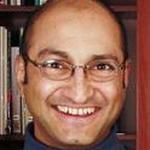 Sivan Kartha is a senior scientist at the Stockholm Environmental Institute and co-leader of its Gender and Social Equality Programme. Kartha has spent more than twenty years focusing on technological options and policy strategies for addressing climate change, concentrating most recently on equity and efficiency in the design of an international climate regime. He has worked closely with the United Nations, World Bank, and numerous governments and foundations. If you want to know why social equity is a necessary component of a successful global response to climate change, invite Sivan Kartha to your table. Sivan Kartha is a senior scientist at the Stockholm Environmental Institute and co-leader of its Gender and Social Equality Programme. Kartha has spent more than twenty years focusing on technological options and policy strategies for addressing climate change, concentrating most recently on equity and efficiency in the design of an international climate regime. He has worked closely with the United Nations, World Bank, and numerous governments and foundations. If you want to know why social equity is a necessary component of a successful global response to climate change, invite Sivan Kartha to your table. |
Robert Latiff* - Disruptive Technologies |
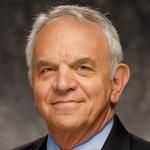 Retired US Air Force Major General Robert Latiff is a private consultant and has faculty appointments at the University of Notre Dame and at George Mason University. His forthcoming book, Future Peace, studies the role technology plays in aggression and the decisions to go to war. Invite Robert Latiff to your table to discuss his latest thinking on technology and the ethics of war. Retired US Air Force Major General Robert Latiff is a private consultant and has faculty appointments at the University of Notre Dame and at George Mason University. His forthcoming book, Future Peace, studies the role technology plays in aggression and the decisions to go to war. Invite Robert Latiff to your table to discuss his latest thinking on technology and the ethics of war. |
Filippa Lentzos - Biosecurity |
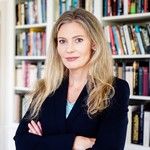 Filippa Lentzos is associate professor of Science and International Security at King’s College London and a regular contributor to the Bulletin. Her writing focuses on the responsible use of the life science, next generation biotech, and emerging technologies. Her recent publications consider how to investigate the origins of the COVID-19 pandemic, and how labs researching the most dangerous pathogens can stay safe and secure. Want to brainstorm how to fix global health security? Invite Filippa Lentzos to your table. Filippa Lentzos is associate professor of Science and International Security at King’s College London and a regular contributor to the Bulletin. Her writing focuses on the responsible use of the life science, next generation biotech, and emerging technologies. Her recent publications consider how to investigate the origins of the COVID-19 pandemic, and how labs researching the most dangerous pathogens can stay safe and secure. Want to brainstorm how to fix global health security? Invite Filippa Lentzos to your table. |
Herb Lin* - Disruptive Technologies |
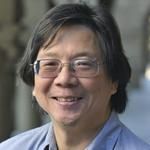 Herb Lin is the Hank J. Holland Fellow in Cyber Policy and Security at the Hoover Institution at Stanford University, where his research focuses on the policy-related dimensions of cybersecurity and cyberspace. In 2016, he served on President Obama’s Commission on Enhancing National Cybersecurity. He is looking forward to discussing with you today’s information dystopia and the ever-increasing role that disinformation is playing in making us less safe. Herb Lin is the Hank J. Holland Fellow in Cyber Policy and Security at the Hoover Institution at Stanford University, where his research focuses on the policy-related dimensions of cybersecurity and cyberspace. In 2016, he served on President Obama’s Commission on Enhancing National Cybersecurity. He is looking forward to discussing with you today’s information dystopia and the ever-increasing role that disinformation is playing in making us less safe. |
Suzet McKinney* - Biosecurity |
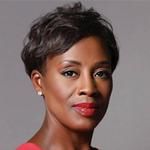 Suzet McKinney is the principal and director of Life Sciences for Sterling Bay, where she oversees relationships with the scientific, academic, corporate, tech, and governmental sectors involved in the life sciences ecosystem. Previously, McKinney was the CEO/executive director of the Illinois Medical District, one of the largest medical districts in the country. Before joining the IMD, McKinney was the Deputy Commissioner of Public Health Preparedness and Emergency Response at the Chicago Department of Public Health, where she routinely prepared the city in the case of pandemics or biological attacks. Wondering how cities can better prepare for future pandemics? Invite Suzet McKinney to your table. Suzet McKinney is the principal and director of Life Sciences for Sterling Bay, where she oversees relationships with the scientific, academic, corporate, tech, and governmental sectors involved in the life sciences ecosystem. Previously, McKinney was the CEO/executive director of the Illinois Medical District, one of the largest medical districts in the country. Before joining the IMD, McKinney was the Deputy Commissioner of Public Health Preparedness and Emergency Response at the Chicago Department of Public Health, where she routinely prepared the city in the case of pandemics or biological attacks. Wondering how cities can better prepare for future pandemics? Invite Suzet McKinney to your table. |
Steven Miller* - Nuclear Risk |
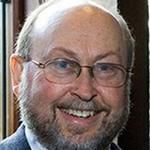 Steven Miller is the Director of the International Security Program at the Harvard Belfer Center and is a Fellow of the American Academy of Arts and Sciences. His work addresses the global nuclear balance of power. With July’s discovery of two new Chinese nuclear missile silos fields, that balance appears to be in flux. Want an up-to-date understanding of the changing global nuclear order? Steve Miller is the provocateur to invite to your table. Steven Miller is the Director of the International Security Program at the Harvard Belfer Center and is a Fellow of the American Academy of Arts and Sciences. His work addresses the global nuclear balance of power. With July’s discovery of two new Chinese nuclear missile silos fields, that balance appears to be in flux. Want an up-to-date understanding of the changing global nuclear order? Steve Miller is the provocateur to invite to your table. |
John Morales - Climate Change |
 John Morales is the chief meteorologist for WTVJ NBC 6 in Miami, and the longest tenured weathercaster in South Florida. His writing is also regularly featured in the Bulletin. Morales has received four regional Emmy’s for his work and is a fellow of the American Meteorological Society. Want to talk to someone who is tackling climate communications daily? Invite John Morales to your table. John Morales is the chief meteorologist for WTVJ NBC 6 in Miami, and the longest tenured weathercaster in South Florida. His writing is also regularly featured in the Bulletin. Morales has received four regional Emmy’s for his work and is a fellow of the American Meteorological Society. Want to talk to someone who is tackling climate communications daily? Invite John Morales to your table. |
William J. Perry** - Nuclear Risk |
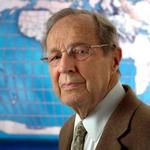 William J. Perry served as the 19th Secretary of Defense for the United States where he focused daily on reducing the nuclear arsenal in order to make the world a safer place. After his time in office, he founded the William J. Perry Project to engage and educate the public on nuclear threats. He was awarded the Presidential Medal of Freedom in 1997 and the Knight Commander of the British Empire Award in 1998. He currently serves as chair of the Bulletin’s Board of Sponsors. In 2020, he published his most recent co-authored book The Button: The New Nuclear Arms Race and Presidential Power from Truman to Trump. Want to learn more about why presidential sole authority to launch a nuclear weapon is folly? Join Secretary Perry to discuss this and so much more. William J. Perry served as the 19th Secretary of Defense for the United States where he focused daily on reducing the nuclear arsenal in order to make the world a safer place. After his time in office, he founded the William J. Perry Project to engage and educate the public on nuclear threats. He was awarded the Presidential Medal of Freedom in 1997 and the Knight Commander of the British Empire Award in 1998. He currently serves as chair of the Bulletin’s Board of Sponsors. In 2020, he published his most recent co-authored book The Button: The New Nuclear Arms Race and Presidential Power from Truman to Trump. Want to learn more about why presidential sole authority to launch a nuclear weapon is folly? Join Secretary Perry to discuss this and so much more. |
Ray Pierrehumbert* - Climate Change |
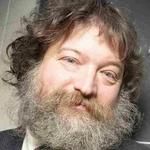 Ray Pierrehumbert is the Halley Professor of Atmospheric, Oceanic and Planetary Physics at the University of Oxford and was a lead author on the United Nation’s Intergovernmental Panel on Climate Change. His work on the physics of climate has covered the climates of exoplanets, Mars, and Titan, the response of Earth’s climate to human-caused increases in carbon dioxide, and recent and deep time climates. Think one hundred years is a long time and that the politicians will eventually adapt to climate change? Invite Ray Pierrehumbert to your table and expect to be dissuaded. Ray Pierrehumbert is the Halley Professor of Atmospheric, Oceanic and Planetary Physics at the University of Oxford and was a lead author on the United Nation’s Intergovernmental Panel on Climate Change. His work on the physics of climate has covered the climates of exoplanets, Mars, and Titan, the response of Earth’s climate to human-caused increases in carbon dioxide, and recent and deep time climates. Think one hundred years is a long time and that the politicians will eventually adapt to climate change? Invite Ray Pierrehumbert to your table and expect to be dissuaded. |
Valerie Plame - Nuclear Risk |
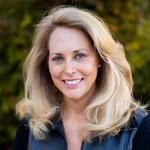 Valerie Plame is a former covert CIA officer and bestselling author. She has managed top-secret covert programs designed to keep terrorists and rogue nation states from acquiring nuclear weapons. Her memoir, Fair Game: My Life as a Spy, My Betrayal by the White House, chronicles her training, experiences, and what led to her resignation from Agency. Invite Valerie Plame to your table to learn more about on-the-ground counter-proliferation efforts and what it means to speak truth to power. Valerie Plame is a former covert CIA officer and bestselling author. She has managed top-secret covert programs designed to keep terrorists and rogue nation states from acquiring nuclear weapons. Her memoir, Fair Game: My Life as a Spy, My Betrayal by the White House, chronicles her training, experiences, and what led to her resignation from Agency. Invite Valerie Plame to your table to learn more about on-the-ground counter-proliferation efforts and what it means to speak truth to power. |
Robert Rosner* - Nuclear Risk |
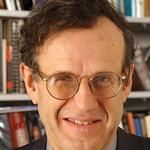 Robert Rosner is current chair of the SASB and is the William E. Wrather Distinguished Service Professor in the Departments of Astronomy & Astrophysics and Physics, and the Harris School of Public Policy at the University of Chicago. Rosner is a professor of astronomy, astrophysics, and physics, and in 2020 was elected to the presidential line of the American Physical Society. His current work lives at the seams of physics and policy, focusing on safe deployment of non-fossil fuel-based sources of energy like nuclear power and electrification of transportation. Join him to discuss the future of fuel and power. Robert Rosner is current chair of the SASB and is the William E. Wrather Distinguished Service Professor in the Departments of Astronomy & Astrophysics and Physics, and the Harris School of Public Policy at the University of Chicago. Rosner is a professor of astronomy, astrophysics, and physics, and in 2020 was elected to the presidential line of the American Physical Society. His current work lives at the seams of physics and policy, focusing on safe deployment of non-fossil fuel-based sources of energy like nuclear power and electrification of transportation. Join him to discuss the future of fuel and power. |
Scott Sagan* - Nuclear Risk |
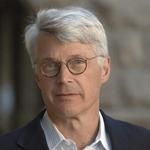 Scott Sagan is the Caroline S.G. Munro Professor of Political Science and co-director of the Center for International Security and Cooperation at Stanford University and serves as chairman of the American Academy of Arts and Sciences’ Committee on International Security Studies. For the 75th anniversary of the dropping of the atomic bombs on Hiroshima and Nagasaki, he co-authored a controversial piece in the Bulletin magazine arguing that if dropped today, the act would constitute a war crime. Join a conversation on public perceptions and legal considerations surrounding nuclear weapons and their role in today’s security environment. Scott Sagan is the Caroline S.G. Munro Professor of Political Science and co-director of the Center for International Security and Cooperation at Stanford University and serves as chairman of the American Academy of Arts and Sciences’ Committee on International Security Studies. For the 75th anniversary of the dropping of the atomic bombs on Hiroshima and Nagasaki, he co-authored a controversial piece in the Bulletin magazine arguing that if dropped today, the act would constitute a war crime. Join a conversation on public perceptions and legal considerations surrounding nuclear weapons and their role in today’s security environment. |
Jacob Shapiro - Disruptive Technologies |
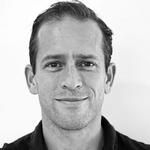 Jacob Shapiro is a professor of Politics and International Affairs at Princeton University and directs the Empirical Studies of Conflict Project, a multi-university consortium. Shapiro’s cutting-edge work is focused on misinformation and together with his students, he has identified, recorded, tracked, and written about thousands of global COVID-19 misinformation narratives clogging the internet. Invite Jacob Shapiro to discuss mis- and disinformation, how it is propagated, and what we can do about it. Jacob Shapiro is a professor of Politics and International Affairs at Princeton University and directs the Empirical Studies of Conflict Project, a multi-university consortium. Shapiro’s cutting-edge work is focused on misinformation and together with his students, he has identified, recorded, tracked, and written about thousands of global COVID-19 misinformation narratives clogging the internet. Invite Jacob Shapiro to discuss mis- and disinformation, how it is propagated, and what we can do about it. |
Robert Socolow* - Climate Change |
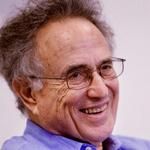 Robert Socolow, a physicist and professor emeritus at Princeton University, has spent half a century stimulating new dialogs addressing environmental problems, from wilderness preservation to efficient energy to climate change. Two of his current goals are to stimulate a more ambitious climate science program, and to assure that the fossil energy industries participate in the low-carbon economy by using technologies that return fossil carbon to geological formations. Want to learn more about the future of climate change mitigation? Invite Rob Socolow to your table. Robert Socolow, a physicist and professor emeritus at Princeton University, has spent half a century stimulating new dialogs addressing environmental problems, from wilderness preservation to efficient energy to climate change. Two of his current goals are to stimulate a more ambitious climate science program, and to assure that the fossil energy industries participate in the low-carbon economy by using technologies that return fossil carbon to geological formations. Want to learn more about the future of climate change mitigation? Invite Rob Socolow to your table. |
Susan Solomon* - Climate Change |
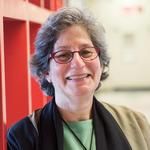 Recipient of the Crafoord Prize in Geoscience in 2018, the climate scientists’ equivalent of the Nobel Prize, Susan Solomon is the Martin Professor of Environmental Studies at the Massachusetts Institute of Technology. Her pioneering work identified the damaging role that chlorofluorocarbons played in causing the hole in Antarctica’s ozone layer. Her work also formed the basis of the UN Montreal Protocol, the international agreement to protect the ozone layer by regulating damaging chemicals. Invite her to your table to discuss her current book project on successes in dealing with environmental challenges, and the thrills, chills, and spills of going to Antarctica. Recipient of the Crafoord Prize in Geoscience in 2018, the climate scientists’ equivalent of the Nobel Prize, Susan Solomon is the Martin Professor of Environmental Studies at the Massachusetts Institute of Technology. Her pioneering work identified the damaging role that chlorofluorocarbons played in causing the hole in Antarctica’s ozone layer. Her work also formed the basis of the UN Montreal Protocol, the international agreement to protect the ozone layer by regulating damaging chemicals. Invite her to your table to discuss her current book project on successes in dealing with environmental challenges, and the thrills, chills, and spills of going to Antarctica. |
Sharon Squassoni* - Nuclear Risk |
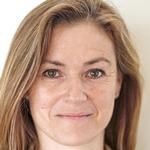 Sharon Squassoni is a research professor at the Institute for International Science and Technology Policy, Elliott School of International Affairs, at George Washington University. She has specialized in nuclear nonproliferation, arms control, and security policy for three decades, serving in the US government at the Arms Control and Disarmament Agency, the State Department, and the Congressional Research Service. Squassoni champions nonproliferation, good governance, adherence to treaties, and safe nuclear energy usage. She is deeply involved in US-Russian relations, notwithstanding their current anemic state. Want to figure out how to get more engaged in issues of non-proliferation? This is the provocateur to invite to your table. Sharon Squassoni is a research professor at the Institute for International Science and Technology Policy, Elliott School of International Affairs, at George Washington University. She has specialized in nuclear nonproliferation, arms control, and security policy for three decades, serving in the US government at the Arms Control and Disarmament Agency, the State Department, and the Congressional Research Service. Squassoni champions nonproliferation, good governance, adherence to treaties, and safe nuclear energy usage. She is deeply involved in US-Russian relations, notwithstanding their current anemic state. Want to figure out how to get more engaged in issues of non-proliferation? This is the provocateur to invite to your table. |
Camille Stewart - Disruptive Technologies |
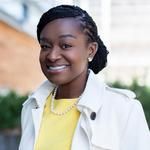 Camille Stewart is the global head of Product Security Strategy at Google. She has experience leading cyber security, privacy, election integrity, and misinformation policy efforts at the Department of Homeland Security, and Deloitte, among other places. Want to learn more about the intersection of complex technology, cyber, national security, and US foreign policy? Invite Camille Stewart to your table. Camille Stewart is the global head of Product Security Strategy at Google. She has experience leading cyber security, privacy, election integrity, and misinformation policy efforts at the Department of Homeland Security, and Deloitte, among other places. Want to learn more about the intersection of complex technology, cyber, national security, and US foreign policy? Invite Camille Stewart to your table. |
Jon Wolfsthal* Nuclear Risk |
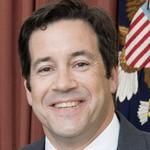 Jon Wolfsthal is senior advisor at Global Zero, a global movement dedicated to nuclear reductions and disarmament. During the Obama administration he served as special assistant to the President for National Security Affairs, senior director at the National Security Council for arms control and nonproliferation, and as special advisor for nuclear issues to then Vice President Biden. During his time in government, he was involved in almost every aspect of US nuclear weapons, arms control, non- proliferation, and security policy. Want to know more about the inside view of the Iran deal, the future of nuclear reductions and negotiations with Russia and China, Obama’s 2009 speech, or what the extension of New START means for the future of nuclear stability? Invite Jon Wolfsthal to your table. Jon Wolfsthal is senior advisor at Global Zero, a global movement dedicated to nuclear reductions and disarmament. During the Obama administration he served as special assistant to the President for National Security Affairs, senior director at the National Security Council for arms control and nonproliferation, and as special advisor for nuclear issues to then Vice President Biden. During his time in government, he was involved in almost every aspect of US nuclear weapons, arms control, non- proliferation, and security policy. Want to know more about the inside view of the Iran deal, the future of nuclear reductions and negotiations with Russia and China, Obama’s 2009 speech, or what the extension of New START means for the future of nuclear stability? Invite Jon Wolfsthal to your table. |
Event Features
- Each virtual table has two provocateurs, established and up-and-coming experts in the fields of nuclear risk, climate change, and disruptive technologies. The provocateurs include members of the Bulletin’s Science and Security Board, Board of Sponsors, and invited experts from around the world.
- Table hosts can select their experts from an exciting list of confirmed leaders. As the host, you or your designated guest will also introduce the provocateurs and assist in leading the table conversations.
- In addition to the intimate “table” style conversation, we will gather as a community. The program will include keynote speakers, our Rieser Award recipient, and special messages for our guests.
- For further information, please contact Colleen McElligott, [email protected] or 773.834.2308.
Thank you to our Platinum Sponsor!
Titanium - $50,000
- Two virtual tables of ten at the 2021 Virtual Event
- First choice opportunity to select two provocateurs to lead discussions at each table
- Lead sponsor podium and video screen recognition during the event; on the Bulletin website; in the 2021 Annual Report *
- Invitations to future salon dinners, private Bulletin events, and limited-attendance virtual offerings
- Complimentary one-year Bulletin Magazine subscriptions for you and your guests
Signed limited edition copies of The Bulletin Turns 75 for you and your guests
Platinum - $25,000
- Virtual table of ten at the 2021 Virtual Event
First choice opportunity to select two provocateurs to lead discussions at each table - Lead sponsor podium and video screen recognition during the event; on the Bulletin website; in the 2021 Annual Report *
- Invitations to future salon dinners, private Bulletin events, and limited-attendance virtual offerings
- Complimentary one-year Bulletin Magazine subscriptions for you and your guests
- Signed limited edition copies of The Bulletin Turns 75 for you and your guests
Gold - $10,000
- Virtual table of ten at the 2021 Virtual Event
Priority to select two provocateurs to lead discussions at your table - Prominent video screen recognition during the event; on the Bulletin website; in the 2021 Annual Report
- Invitation to future salon dinners, private Bulletin events, and limited-attendance virtual offerings
- Complimentary one-year Bulletin Magazine subscriptions for you and your guests
- Two signed limited edition copies of The Bulletin Turns 75
Silver - $5,000
- Virtual table of ten at the 2021 Virtual Event
- Choice of two provocateurs for your table to lead discussions
- Recognition on event video screen; on the Bulletin website; in the 2021 Annual Report
Individual Support
Supporter Ticket - $250
- Join other guests at a virtual table
- Preference of discussion topics: Nuclear Risk, Climate Change, Disruptive Technologies, and Biosecurity
Special Offer
- Organize a group of ten or more and we will ensure an exclusive table for your guests with provocateurs provided to lead discussions at your own virtual table
Sponsor an Educator or Student - $250
- Underwrite an educator or student to attend the 2021 Virtual Annual Event
Thank you to our sponsors:
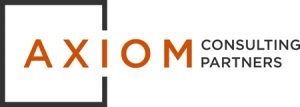
To become a sponsor for the 2021 Annual Event, please contact our giving officer, Colleen McElligott.
Email: [email protected]
Office Telephone: 773.834.2308